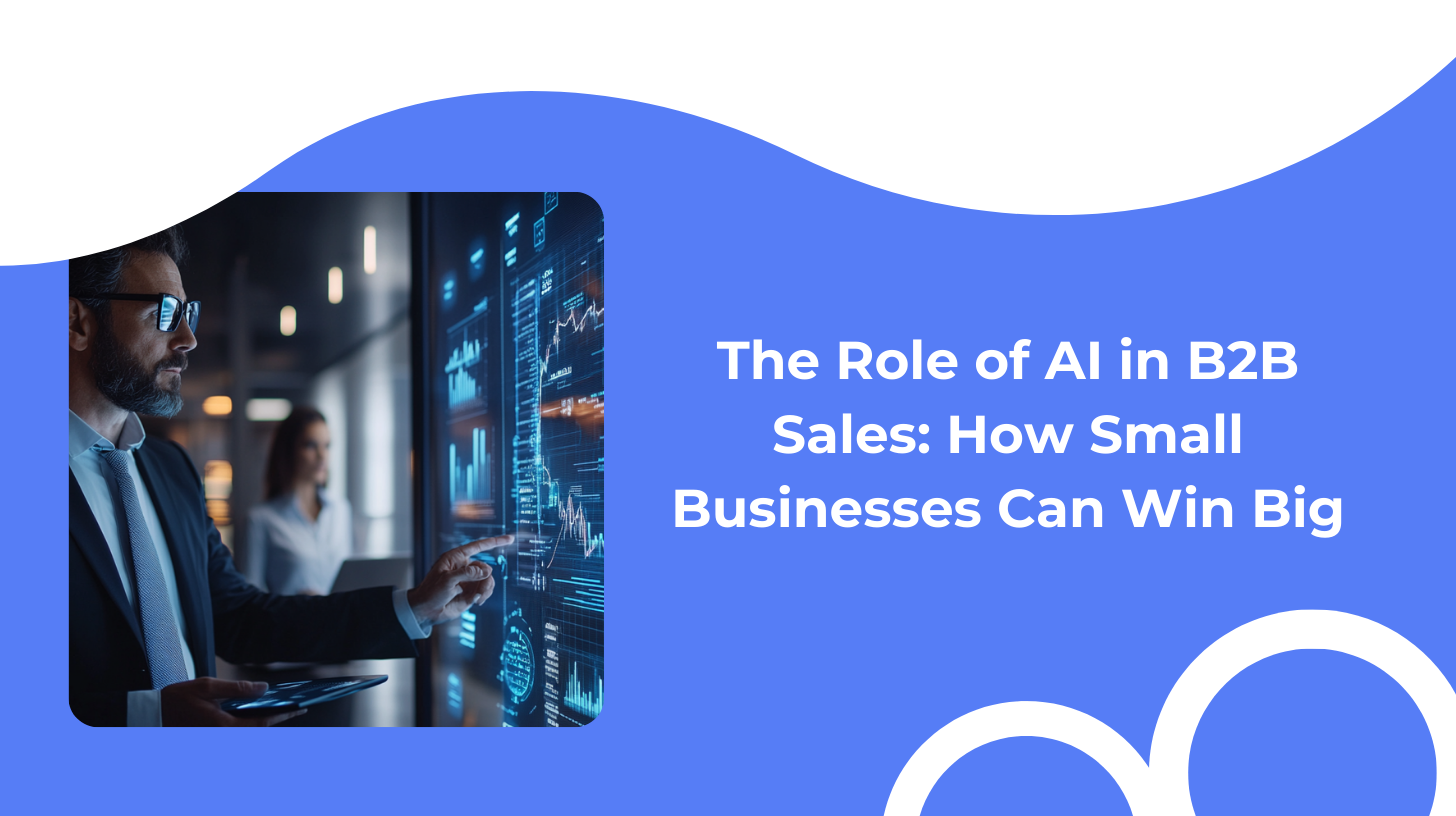How AI Sales Managers Help Small Businesses Compete with Big Brands

Running a small business today means constantly competing with large, well-funded brands. They have bigger teams, larger advertising budgets, and more resources to offer exceptional customer service. But technology is leveling the playing field. AI-powered Sales Managers are giving small businesses the tools they need to punch above their weight—offering instant responses, 24/7 support, and scalable sales processes without the heavy overhead.
Challenges Small Businesses Face Against Big Brands
Unlike corporations, small businesses often struggle with:
- Limited sales and support teams
- Slower response times, leading to lost leads
- Inability to provide 24/7 customer support
- Difficulty standing out in saturated markets
- Tight budgets restricting aggressive sales growth
These challenges make it hard to win customers who expect quick, personalized service. Big brands dominate because they can afford teams around the clock. But what if you could replicate that level of service without growing your payroll?
How AI Sales Managers Transform Small Business Operations
-
24/7 Customer Support That Never Sleeps
One of the biggest gaps between small businesses and big brands is the ability to provide round-the-clock support. AI Sales Managers handle customer inquiries 24/7, whether it’s answering FAQs, booking appointments, or processing orders. And their effectiveness depends entirely on how well you build their knowledge base. By uploading detailed answers to typical questions and outlining ideal behavior patterns, businesses can create a Sales Manager that performs better, faster, and more consistently than a human.
Example: A mid-sized company producing metal-plastic windows installed an AI Support Manager to handle customer requests. Within two months, they saw a 2.75x increase in service appointments for window adjustments, significantly boosting revenue—all without hiring additional staff.
-
Instant Lead Qualification & Nurturing
Speed matters. Studies show responding within the first few minutes of a lead inquiry dramatically increases chances of conversion. AI Sales Managers engage potential customers the moment they reach out—qualifying them, gathering their information, and guiding them towards the next step (such as booking a meeting).
This eliminates delays often caused by small teams juggling multiple tasks, ensuring no hot lead slips through the cracks.
-
Personalized Interactions Through CRM Integration
AI Sales Managers don’t just operate in isolation—they integrate with your CRM system. This means they can reference a client’s previous interactions, preferences, and past purchases during conversations. Customers receive a personalized experience typically expected only from big brands with advanced CRM strategies.
-
Boosting Sales Conversion Rates While Reducing Costs
Here’s where small businesses see real impact: AI Sales Managers cost roughly 20-30% of a typical salesperson’s salary, yet they handle the workload of 3-5 employees. This translates into:
- 2x increase in meetings booked
- Same conversion rate per meeting, but higher volume of sales
- 20%+ reduction in overall payroll costs
Case in point: An e-commerce textile brand implemented an AI Sales Manager. Not only did they reduce the size of their sales team by 20%, but productivity doubled—leading to a significant increase in closed sales, without inflating operational expenses.
Key Benefits: How Small Businesses Outpace Big Brands
While large brands may have resources, small businesses using AI Sales Managers gain unique advantages:
- Agility & Speed: Instant responses vs. corporate bureaucracy
- Cost-Efficiency: No need to expand teams while scaling sales
- Consistent Quality: AI doesn’t get tired, sick, or forgetful
- Customer Trust: Fast, knowledgeable, personalized communication builds loyalty
- Competitive Differentiation: Many large brands still underutilize AI in sales—small businesses adopting it stand out as innovative and tech-savvy
Implementation: How to Get Started
-
Select a Flexible AI Sales Manager Platform
Look for solutions that are easy to integrate and affordable.
-
Build a Comprehensive Knowledge Base
The AI’s success depends on how well it’s trained. Upload answers to frequent questions, define sales scripts, and outline scenarios for different customer needs.
-
Integrate with Your CRM & Communication Channels
Ensure the AI has access to client history for personalized conversations.
-
Monitor & Optimize
Track key metrics—response time, conversion rates, appointment bookings—and refine the AI’s behavior regularly.
Addressing Common Misconceptions (Woven Through the Text)
You might wonder:
- “Will customers dislike speaking with AI?”
In reality, fast, relevant responses often matter more than whether a human or AI is replying—especially if the AI communicates naturally.
- “Is this only for big brands?”
Not anymore. Platforms like SalesDep.AI are specifically tailored for small and mid-sized businesses, offering scalability without complexity.
- “Isn’t AI expensive?”
In fact, it costs far less than maintaining a large sales team, delivering higher output at a fraction of the price.
Conclusion
The landscape of sales is changing fast. Small businesses no longer need to be limited by small teams or modest budgets. By implementing AI Sales Managers, they can match—and even exceed—the service levels and responsiveness of big brands, all while reducing costs and increasing sales.
Want to see how AI Sales Managers can help you scale smarter? Book a free demo or get in touch with our team today.

9 min for reading


